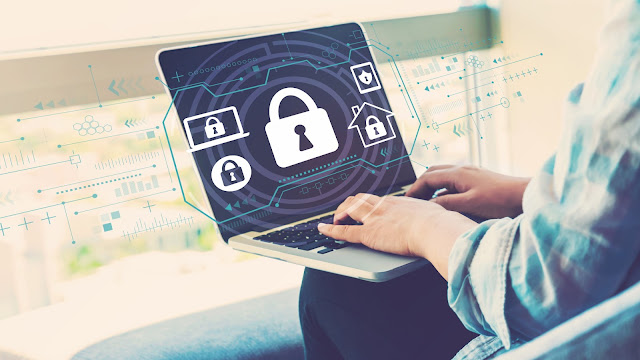Antivirus protection for your workplace computers is a critical component of security in today's business environment. You should consider centrally managed antivirus solutions for your office PCs. They should be designed for office computers and can protect the entire workplace from malicious software.
The right antivirus solution will also protect your business from the risks posed by Bring Your Own Device (BYOD) scenarios, where employees use their personal mobile devices to work. Because these personal devices are not protected, they can compromise your business' security.
You are struggling to fight off the increasing number of cyber attacks targeting your business. Your IT department is too busy to deal with the issue, and you can’t afford to hire a full time security expert. emsisoft, our antivirus protection for your workplace, will keep your systems safe from malware and hackers!
1. Centrally managed antivirus
Whether you're a small business looking to secure your IT environment or a larger enterprise, the best solution for protecting your workers' personal devices is to install a centrally managed antivirus protection solution.
Such a solution is optimized for use on office PCs and can also be used on mobile devices. Employees using their personal devices may have sensitive business data, which is at risk if it's not properly protected. The same applies to Wi-Fi and port-sharing, where any unauthorized access can compromise a business's security.
A managed antivirus solution provides continuous protection for all the PCs in a network. These devices are protected from new threats as they appear every day. It also ensures that all devices are always running the latest updates and protection. As a result, managed antivirus is more cost-effective than individual licensing.
With the growth of digital threats, managed antivirus protection is an essential component of any company's IT security plan. Without it, the entire network is at risk, and recovering from a successful cyberattack can be expensive or impossible.
With centrally managed antivirus protection, all devices are equipped with the latest antivirus, and the IT service provider runs regular scans and applies the latest virus definitions to ensure your computers remain secure.
2. Mobile device management
A strong mobile device management policy is vital in keeping employees' data safe. These policies can limit the number of times a device can connect to the internet or can require users to download applications before they can use them. Policies should be outlined in an MDM manual and be communicated to users. They should understand why certain actions are not permitted and be able to follow them.
In addition to mobile device management, an antivirus and security software for mobile devices is also important. With the increasing use of mobile devices in the workplace, malware and other malicious software are becoming increasingly common.
A recent study by security firm Check Point found that 40 percent of mobile devices are vulnerable to attacks. These security risks can result in lost time and distracted employees.
Mobile device management enables you to enforce uniform security policies and ensure devices are updated regularly. Outdated OS versions and apps can leave your network vulnerable to malware. This also helps protect against phishing. These attacks are becoming increasingly complex, making it difficult to spot them.
3. Firewalls
Firewalls and antivirus protection for your workplace can prevent attacks from malicious websites and viruses. These tools also block phishing scams. These attacks usually use legitimate-looking emails to redirect victims to malicious websites.
Managed firewalls can block access to harmful websites and prevent the transmission of confidential data. While they don't work like antivirus software, they can protect your workplace from the many different types of malware and cyber threats.
Firewalls can filter and block entire data packets. They can also flag potential threats. Another advantage of firewalls is that they can create a "look-alike" device that connects to the internet, but isolates all the data coming from the device.
This makes them the ideal protection against hackers. Moreover, firewalls allow you to control the access of your workers. You can also block sites that are not productive for the company.
Firewalls can also protect you from identity thieves. Identity thieves can break into computer systems and steal confidential information, including tax records, credit card information, and identification numbers. Some remote thieves can even hijack your computer system and plant destructive computer viruses. A firewall is designed to block these threats by inspecting and comparing all electronic data.
4. Automatic updates
Antivirus protection for your workplace should be able to update automatically. This feature is available on many devices, though there are still times when you will need to do it manually. It is always a good idea to monitor the updates that are available for your devices, since outdated versions can result in problems.
Most operating systems have support for automatic updates, and most are enabled by default. Viruses and other malicious software spread through the Internet through hidden links on web pages and email attachments. All it takes is one person to download a malicious file, and before you know it, your entire network is infected.
Final Words
One of the best ways to protect your business computers is to use managed antivirus software. These products are designed to protect your entire company's computers and take the burden off your employees by updating and quarantining viruses. These antivirus solutions automatically scan and apply updates to all computers in your business, so you don't have to worry about the virus.

